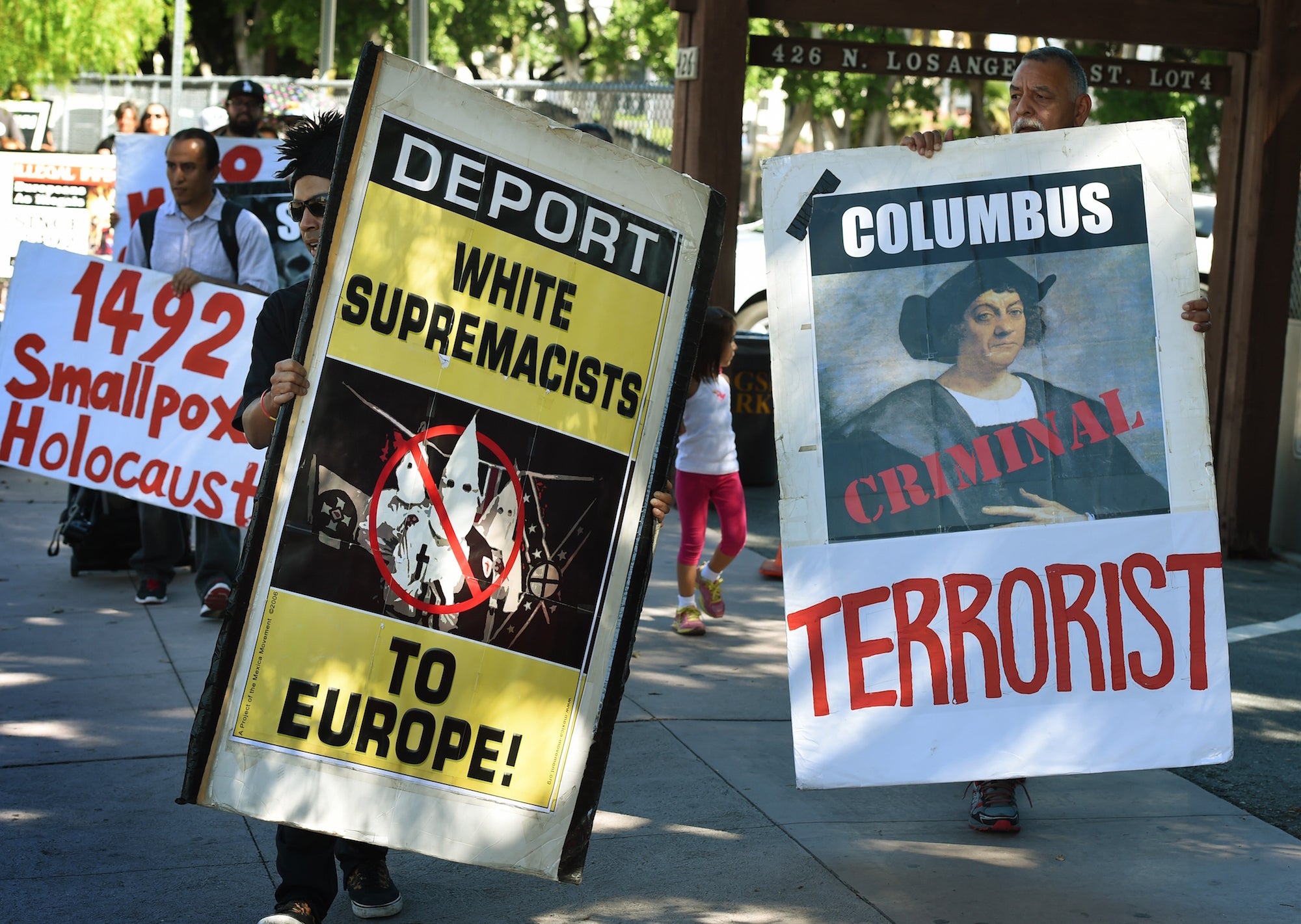More Americans are recognising Indigenous Peoples Day instead of Columbus Day
'We are no longer going to celebrate a time of genocide'

Your support helps us to tell the story
From reproductive rights to climate change to Big Tech, The Independent is on the ground when the story is developing. Whether it's investigating the financials of Elon Musk's pro-Trump PAC or producing our latest documentary, 'The A Word', which shines a light on the American women fighting for reproductive rights, we know how important it is to parse out the facts from the messaging.
At such a critical moment in US history, we need reporters on the ground. Your donation allows us to keep sending journalists to speak to both sides of the story.
The Independent is trusted by Americans across the entire political spectrum. And unlike many other quality news outlets, we choose not to lock Americans out of our reporting and analysis with paywalls. We believe quality journalism should be available to everyone, paid for by those who can afford it.
Your support makes all the difference.Christopher Columbus and his crew are largely responsible for the genocide of 20 million indigenous people, nearly 95 percent of the American population — yet he is celebrated worldwide, and with a federal holiday in the states.
However, cities across the US have dropped Columbus Day to celebrate Indigenous Peoples Day. Among the cities to make the change are Albuquerque, New Mexico; Portland, Oregon; St Paul, Minnesota and Olympia, Washington.
Posted by Secunda Joseph on Saturday, October 10, 2015
Native American activists and allies pushed lawmakers to recognise that honouring Columbus Day simply whitewashes the painful history of genocide, colonialism, enslavement and discrimination that followed Columbus’ voyage to the Americas way back when.
After "discovering" the Americas in 1492, Columbus would later reward his comrades with sex slaves — young girls who were typically 9 to 10-years-old.
“A hundred castellanoes are as easily obtained for a woman as for a farm, and it is very general and there are plenty of dealers who go about looking for girls; those from nine to ten are now in demand,” he wrote in the 1500s.
Bartolomé de las Casas worked alongside Columbus. After witnessing the “barbaric” actions Europeans took against Native Americans, he quit his job to become a Catholic priest.
“Such inhumanities and barbarisms were committed in my sight as no age can parallel. My eyes have seen these acts so foreign to human nature that now I tremble as I write," he said in his writings.
South Dakota renamed Columbus Day to Native American Day in 1990, becoming the first and only state to recognize the holiday. Meanwhile, Berkeley, California, has observed Indigenous Peoples Day since 1992. Oklahoma City will be the next community to consider adopting a similar holiday.
Multnomah County Chair Deborah Kafoury explained exactly why Portland, Oregon has chosen to ditch the former holiday.
“Reclaiming the second Monday in October as Indigenous People’s Day makes a powerful statement. It says, ‘We are no longer going to celebrate a time of genocide, but instead we will honor the land we live on and the people who have been here since the beginning.”‘
Join our commenting forum
Join thought-provoking conversations, follow other Independent readers and see their replies
Comments